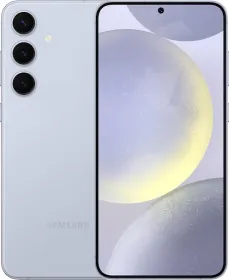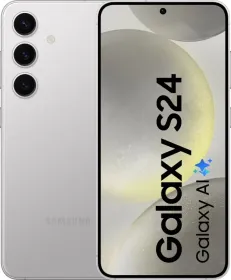iQOO has launched the iQOO Neo 10, the first smartphone in India featuring the Snapdragon 8s Gen 4 chipset. But that’s not all, it also debuts the new supercomputing Q1 chip, which is there to elevate the gaming performance. There’s also a 7000mm² vapour chamber for cooling.
Beyond the new chipset, the Neo 10 comes with a stunning display and an enormous 7000 mAh battery, paired with 120W fast charging. For cameras, it packs a 50 MP rear camera and a 32 MP selfie camera. So, is the iQOO NEO 10 the ultimate gaming phone under ₹35,000? Let’s dive into this review and find out.
iQOO Neo 10 Price & Availability
The iQOO Neo 10 is available in two colors: Inferno Red and Titanium Gray. It comes in four storage and RAM variants:
- 8/128: ₹31,999
- 8/256: ₹33,999
- 12/256: ₹35,999
- 16/512: ₹40,999
The phone is available for purchase through the iQOO eStore, Amazon, and other retail outlets. You can avail a ₹2,000 instant discount on select cards. Those who pre-book the device will get an iQOO TWS 1e for free.
Pros
- Great performance
- Bright and responsive display
- 4,320 Hz PWM dimming
- Useful AI features
- Decent haptics
- Great battery life with 7,000 mAh
- Not too bulky
- PD support with PD charger inside the box
- Super fast charging
Cons
- Plastic build feels less premium
- Average camera performance, especially in low light
- Selfie camera has narrow focal length, poor stabilization
- EIS jitter in videos
- Lacks a physical proximity sensor
iQOO Neo 10 Specifications
- Display: 6.78” AMOLED, 4,320 Hz PWM dimming, 2800 x 1260 (1.5K) resolution, 452 PPI, 2,000 Nits HBM, 5,500 Nits peak brightness, 144 Hz (Gaming), 120 Hz/90 Hz/60 Hz (Normal), Schott Xensation Up
- SoC: Qualcomm Snapdragon 8s Gen 4 (1x 3.21 GHz, 3x 3.01 GHz, 2x 2.8 GHz, 2x 2.01 GHz, Adreno 825 GPU)
- RAM: 8 GB / 12 GB / 16 GB LPDDR5X
- Storage: 128 GB (UFS 3.1) / 256 GB / 512 GB (UFS 4.1)
- Cameras:
- Main: 50 MP Sony IMX882, 1/1.95-inch, f/1.79, OIS, 26mm, PDAF, 4K60/4K30
- Ultra-wide: 8 MP GalaxyCore GC08A3-WA1XA, 1/4-inch, f/2.2, 16mm, 120°, 1080p30
- Front: 32 MP GalaxyCore GC32E1-WA1XA, 1/3.1-inch, f/2.45, 28mm, FF, 4K60/4K30
- Audio: Stereo speakers, AAC, WAV, MP3, MIDI, VORBIS, APE, FLAC, Type-C audio
- Battery and Charging: 7,000 mAh (dual cell, Si/C), 120W FlashCharge, USB 2.0
- IP Rating: IP65
- Connectivity: 5G, Wi-Fi 7, Bluetooth 5.4, NFC
- Biometrics: Under-display optical fingerprint scanner
- Weight and Thickness: 206g, 8.09mm
- Build: Polycarbonate back and frame
- OS: Funtouch OS 15, Android 15; 3 + 4 update policy
iQOO Neo 10 Review: Unboxing

The iQOO Neo 10 packs everything you’d expect in the box. Inside, you’ll find the phone itself with a pre-applied screen protector, a transparent case, a 120 W PD charger (which is a solid addition), a Type-C to Type-C cable, a SIM ejector tool, and the usual paperwork. This setup makes it easy to start using the phone right away—no need to buy extra accessories.
iQOO Neo 10 Review: Design and Build

The iQOO Neo 10 has an all-plastic build that doesn’t feel super premium, though it’s not terrible. It’s 8.09 mm thick, weighs 206 grams, and packs a 7000 mAh battery, which is impressive. You won’t have issues using the device for prolonged periods.
When it comes to the colors, the iQOO Neo 10 offers two options. I really like the Inferno Red colorway, but the Titanium Gray feels bland. The camera module seems to have a ring flash design like the iQOO 13, but I can’t find a way turn it on in the settings.
It has a boxy design that’s comfortable for long use. At the bottom are the USB 2.0 charging port, speaker grill, mic, and dual-SIM tray. Up top, there’s a secondary speaker and mic. On the right, there’s the power button and volume rockers.
There’s also an IR blaster integrated into the camera module. The phone has NFC and an IP65 rating, though IP68 would’ve been better. Unfortunately, there is no physical proximity sensor, so accidental touches during calls can happen. Weight distribution is good, and the 6.78-inch display makes it a big phone, ideal for gaming. Overall, build quality isn’t top-tier, but the phone doesn’t feel cheap.
iQOO Neo 10 Review: Display

The iQOO Neo 10’s 6.78-inch OLED display is excellent. It’s a flat panel with 1.5K resolution and 452 ppi, and you can switch it down to 1080p, but 1.5K is definitely sharper. Brightness is top-notch, outdoors use is no issue, with 5,500 Nits peak HDR brightness (not really useful in th real-world) and 2,000 Nits typical HDR brightness. It’s one of the brightest phones that I’ve used.
It has 4,320 Hz PWM dimming and optional DC dimming (in developer settings)—Full Range DC-like Dimming and Low Brightness Ultra-High Frequency PWM Dimming, but they can cause some artifacts, so I wouldn’t recommend them. The default PWM is really good.
Refresh rate is 120 Hz, but Smart Switch mode sometimes drops it to 90 Hz or 60 Hz, so set it to “High” for consistent 120 Hz. The display supports HDR on Netflix, YouTube, and Prime Video. It’s protected by Schott Xensation Up glass, and though bezels aren’t uniform, they’re thin enough. Overall, the display brightness, colors, and quality are really good.
iQOO Neo 10 Review: Speakers and Haptics

The iQOO Neo 10’s dual speakers are loud, with decent power, but clarity isn’t the best. It lacks the balance compared to other phones in the segment. The 200% or 300% volume boost option is super loud but distorts a lot, useful only in noisy environments when you just need to hear something.
The earpiece is fine for calls, and mic quality is decent too. Haptics are precise and give a solid tactile feel, though other phones do it better. Software integration of haptics is below average. Overall, speakers and haptics are good enough.
iQOO Neo 10 Review: Software

The iQOO Neo 10 runs on Funtouch OS 15 based on Android 15, with a promise of 3 years of OS updates and 4 years of security patches, which is fairly standard at this price. In daily use, it feels smooth. Animations are nice (but you’ll need to turn on real-time blur in settings to get the best visual experience).

Still, they’re not as refined as ColorOS 15’s, and the overall UI design doesn’t quite feel as modern or appealing. There’s lock screen customization, blur effects in the control center and app drawer, themes, floating windows, split-screen, and 2 app icons to choose from (but no third-party icon support).

Bloatware is there too, but you can disable most of it (except for the stock app store and browser, which are stuck). Disabling notifications is your best bet if they’re annoying.

AI Features
On the AI front, the Neo 10 packs a lot. There’s an AI eraser in the Albums app (it’s fine, not on par with Google’s or Samsung’s), AI Photo Enhance (but not very useful), AI Ultra HD Document (lets you create documents from the camera), and Live Text (selects text from images). Live Cutout is another neat trick for quick drag-and-drop subject cutouts.



Productivity-wise, there’s AI Transcript in the recorder app (very handy) and Note Assistant in the Notes app (which can summarize or change the tone of your notes). AI Call Translation can live-translate calls, useful if you’re traveling or in multilingual scenarios. There’s also an AI Image Expander for filling in missing parts of images or just expanding them for fun.
Google Gemini and Circle to Search are baked in too, with Gemini Live for on-screen sharing and video feed interactions. Overall, the AI features are solid, and while the software itself is very usable, it’s clear that Funtouch OS is due for a design revamp.

iQOO Neo 10 Review: Biometrics

The iQOO Neo 10 comes with an in-display fingerprint scanner that is optical. It is placed lower than I would like but it is fast and secure. You also get 2D face unlock but that should be used a backup option, as it isn’t as secure.
iQOO Neo 10 Review: Performance

The iQOO Neo 10 comes with the Snapdragon 8s Gen 4 chipset, making it India’s first phone to do so. It’s packing a 1 + 5 + 2 octa-core architecture, LPDDR5X Ultra RAM, and UFS 4.1 storage (though it’s really UFS 4.0 with software tweaks). The Supercomputing Q1 chip adds features like Super Game Resolution and Super Game Frame.
The Snapdragon 8s Gen 4, built on TSMC’s 4 nm process, packs serious power. The Q1 chip’s Super Game Resolution works with 17 games (including Asphalt 9 Legends, Marvel Construct Champions, and Raid Shadow Legends), while 144 FPS frame interpolation is supported for BGMI, New State, and Genshin Impact.
Synthetic Benchmarks
In benchmarks, here’s how it stacked up (tested in Monster mode):

| Benchmark | iQOO Neo 10 (Snapdragon 8s Gen 4) | realme GT 7 (Dimensity 9400e) |
| AnTuTu V10 | 1,960,780 | 2,236,357 |
| Geekbench 6 CPU | 2064 / 6541 | 2200 / 7252 |
| Geekbench 6 GPU (OpenCL) | 13,920 | 14,945 |
| Geekbench 6 GPU (Vulkan) | 18,816 | 15,417 |
| Wildlife Extreme Stress Test | Best: 2,857, Lowest: 2,215, 77.5% | Best: 5,239, Lowest: 3,577, 68.3% |
| Wildlife Extreme Overall Score | 3,499 / Avg FPS: 20.95 | 5,247 / Avg FPS: 31.42 |
| Storage Test Score | 187,414 | 206,646 |
Gaming

Gaming performance on the iQOO Neo 10 is impressive. It supports 120 FPS natively in BGMI and 60 FPS in Genshin Impact, delivering smooth gameplay with stable frame rates and thermals (the 7000mm² VC helps). Interestingly, the frame interpolation feature can push BGMI up to 144 FPS and Genshin Impact feels even smoother with it. Have a look at the stats below.

However, the device does get hot, reaching temperatures around 47–48°C. So, for the best experience, 120 FPS in BGMI and 60 FPS in Genshin Impact is ideal unless you’re using external cooling. There are constant frame drops in Wuthering Waves, which needs to be fixed. All in all, the iQOO Neo 10 is among the best gaming phones in its segment.
iQOO Neo 10 Review: Cameras

The rear camera setup has a 50 MP IMX882 sensor (1/1.95-inch size, f/1.7, OIS), accompanied by an 8 MP ultrawide camera. Now, I would’ve loved to see a larger sensor or a 2X telephoto in this price segment, but that’s what you get.
Main Camera
The 50 MP main sensor does a decent job in daylight conditions, with three color modes: Vivid, Natural, and Textured. The Natural mode gives a balanced look, avoiding the sometimes over-HDR look of the Vivid setting.






In 2X crop mode, the main sensor still holds up well in daylight. The main sensor’s low-light performance is also just average; details turn soft and muddy, and the super-night mode needs a tripod to avoid blur. The auto night mode can get you decent results, but again, it’s nothing impressive for a phone priced above ₹30K.









Portrait Mode
Portrait mode offers focal lengths of 1x, 1.5x, and 2x, with good edge detection and pleasing background blur. However, there’s a noticeable tendency to over-smooth skin tones, and doesn’t handle skin tones well.


Ultra-wide
The 8 MP ultra-wide camera performs decently in good light, but in low light, it becomes almost unusable, even with night mode.





Selfie
The selfie camera is a 32 MP sensor with a 28mm focal length, which is too narrow for comfortable selfies. Though you can zoom in 2X digitally (by pinching in on the screen), it doesn’t add much, and stabilization suffers due to the tight crop, making it tough to get a steady, flattering shot.



Portrait selfies suffer from edge detection issues (when it actually blurs the background) and soft details, just like the regular selfies. In low light, it becomes even more apparent, unless you are the on-screen flash.



Video
Video recording supports 4K30 and 4K60 from the rear main camera and selfie camera, while the ultra-wide is limited to 1080p30. However, despite these high specs, video stabilization is subpar (lots of EIS jitter), and the footage tends to be over-saturated.
The main camera’s stabilization issues could be improved with software updates, but the selfie camera’s narrow focal length (28mm) doesn’t leave much room for cropping and stabilization.
Overall, while the camera setup is decent, the performance in low light, skin tone handling, and video stabilization still needs polishing.
iQOO Neo 10 Review: Battery Life and Charging

The iQOO Neo 10 packs a huge 7,000 mAh battery with dual-cell silicon-carbon technology, translating to impressive longevity. Depending on your usage, you can expect between 8 to 12 hours of screen-on time, which is among the best in the segment. You can even get 8-10 hours for screen-on time with heavy BGMI gaming.
For charging, it includes a 120W Type-C PD charger, enabling full charge in about 40 minutes or less. It’s great to see that the bundled charger also supports USB PD, so you can use it to charge laptops or other devices. The phone itself supports 100W PD charging, alongside the 120W FlashCharge.
Review Verdict: Should You Buy the iQOO Neo 10?
The iQOO Neo 10 might not have the best build in the segment, but it makes up for it with stellar performance, a massive 7,000 mAh battery with ultra-fast 120W charging, and a bright, vibrant display that’s great for gaming and content. Its new Snapdragon 8s Gen 4 chipset and Q1 Supercomputing chip push gaming to a new level, especially for those 144 Hz titles.
While the software still feels behind some competitors and the speakers aren’t the clearest, if gaming is your top priority, this phone nails it. In short, the iQOO Neo 10 stands out for those who want beastly performance and battery life in a sub-₹35,000 gaming phone.
PSA: I’d suggest going for the 256 GB variant at ₹33,999. It offers the best value with UFS 4.1 storage, which really unlocks the full performance of the Snapdragon 8s Gen 4. The 128 GB model, on the other hand, still uses UFS 3.1, so you won’t get the same snappy experience.

Smartprix ⭐ Rating: 8.2/10
- Design and Build: 8/10
- Display: 8.2/10
- Speakers: 7.7/10
- Software: 8/10
- Haptics: 7.5/10
- Biometrics: 8/10
- Performance: 9/10
- Cameras: 8/10
- Battery Life & Charging: 9/10
First reviewed in May 2025.

































Appreciate the detailed benchmark comparisons